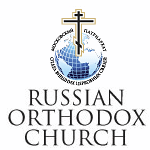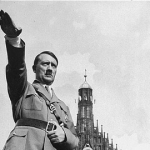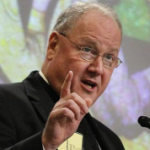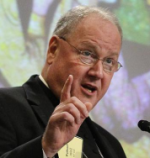Deprecated: trim(): Passing null to parameter #1 ($string) of type string is deprecated in
/home/aoiusa/public_html/wp-content/plugins/sexybookmarks/public.php on line
388
Deprecated: trim(): Passing null to parameter #1 ($string) of type string is deprecated in
/home/aoiusa/public_html/wp-content/plugins/sexybookmarks/public.php on line
394
Deprecated: trim(): Passing null to parameter #1 ($string) of type string is deprecated in
/home/aoiusa/public_html/wp-content/plugins/sexybookmarks/public.php on line
400

ROME, MARCH 13, 2012 (Zenit.org).- Source: ZENIT News
The following is an English version of a presentation originally given in Italian, at a Feb. 29 event organized in Rome by the Tocqueville-Acton Institute, Fondazione Caelo et Terra, and Rubbettino Editore for Italian parliamentarians and the public.
I would like to thank everyone who helped organize this event. This is an important subject that is beginning to manifest itself in all developed countries, from the United States to Europe, Australia to Canada. I do not want to be melodramatic but I really think we’re beginning to see the emergence of a different view not only of fundamental rights, but of the relationship between citizens and government, which is fundamentally altering notions of the rights of conscience and of conscience itself. This change is not inevitable. But it requires us all to recognize the problem and to do something — even if the hour is late.
I want to speak in particular, of course, about the current situation in the United States, which is to say, President Obama’s pressure on Catholic institutions, which is not really a question of rights of conscience, as I hope to explain. There is much confusion about what constitute conscience objections and that which is even more important, in my opinion, the most fundamental — religious freedom.
So, I have three main points: first, to show a true case of a conscience objection, in the proper sense of the term; then, to indicate a cultural problem that is preventing resolution of still other conscience problems; and finally, I would like to analyze a bit the well known controversy in the United States right now on “Obamacare” and religious freedom.
So, let me begin with an example of protection of conscience, correctly understood. In Washington State in the United States, a lawsuit was filed against several pharmacists who refuse to dispense Plan-B drugs and Ella, which are in some cases abortifacients, for reasons of conscience. A large majority in the association of pharmacists in Washington State agreed with them on matters of conscience. But the state, and in particular the Governor Chris Gregoire, a Catholic in theory, have tried to force all pharmacists to dispense all legal medications. The case went to court – a state court not federal. The court found that in the past, pharmacists have been granted exemptions to sell or not sell various types of drugs and devices for economic, business, and other reasons. Since the state found no reason to force pharmacists in these circumstances, then why would it force them when serious moral issues are involved? The pharmacists won the case in a very liberal state on the Pacific coast. But we know why the state has made this attempt: because it wants to eliminate all public resistance to the procedures that progressive leaders now see as the most fundamental rights, far more worthy of protection than those of conscience or religion.
In this case, the judge did the right thing. But how long will this sense of awareness persist among the cultural elite? Another case may provide an answer. And this is my second point. In America, as here in Europe, the movement to allow gay marriage is growing every day. There are many people – I am one of them – and there are also the churches, who believe in civil rights for gay people, as for all people, but consider marriage as something unique, an institution that exists prior to the state. But in the debate, gay marriage is presented as a “fundamental right,” even if that right appears in no part of American Constitution or any other controlling document. By contrast, the resistance to this unfounded new right is presented as something parallel to the denial of basic civil rights to African-Americans before 1960. (In fact, as we know, it’s presented as a psychological disease called homophobia.)
In other words, churches, synagogues, mosques, chapels, individuals, etc. who see marriage as only between a man and a woman are placed in the same moral standing as the Ku Klux Klan – an American racist group – during the struggle for civil rights. And so the traditional faith and morals of the majority of citizens have become a crime against “fundamental rights.” And how long will it be before the state tries to put such believers and their institutions as much as possible outside the law, as it did with the Klan? It may seem unlikely now, but the logic of calling such things as gay marriage a fundamental right or a matter of fundamental equality cannot help but lead in that direction.
And this leads us to the third point: the recent decision by Obama about requiring coverage, not just of contraception, but of abortion-inducing drugs and sterilization, in healthcare mandates. I must say I do not know exactly why he has caused this crisis. But you can see from the form of his “accommodation” that he hasn’t begun to understand the concerns not only of Catholics, but also Evangelicals, Orthodox Jews, Muslims, and others. The Catholic bishops and other opponents of the new mandate have a sound legal foundation for their position. Religious freedom is a fundamental right guaranteed by the First Amendment to the Constitution. (Please understand, that the first ten amendments, what we call our Bill of Rights, are not changes to the original constitution, but an emphasis on the rights that our founders wanted to protect in particular by setting them down explicitly. We Americans have long been proud of our First Amendment: we are a country that, in the words of George Washington to the Touro Synagogue in Newport, RI, gives “to bigotry no sanction, to persecution no assistance.”
By contrast, Obama opened his press conference announcing his “accommodation” with religious objectors with the observation that access to health care for women, including contraception and abortion, the morning-after pills, and sterilization, are a “fundamental right.” Oh, and, among other things, women are entitled to all of them without cost. All this seems to say that there is some right even earlier, as it were, more “first” than First Amendment protections freedom of religion in the Constitution. And somehow nobody seems to have noticed this even prior set of rights until a few weeks ago. In the past, those who have discovered new rights in the constitution – such as abortion – spoke of “emanations and penumbras” that justified their findings. In the new perspective, any institution or person, like the churches, that interferes with the new fundamental rights, is a sectarian on the margins of the American experiment. Many secular commentators have said, long before this particular dispute, that Mr. Obama feels restricted in the management of a modern nation by an antiquated document from the eighteenth century. The New York Times said it again three or four days ago, and point out in particular that the Constitution is wanting because it does not guarantee expansive modern notions of “rights.”
Be that as it may, the Constitution is the document that a former professor of constitutional law swore to preserve, protect, and defend when he became president of the United States. What is the source from which he now receives the authority to deny the fundamental protections of the law to religious people? The whole point of a Constitution is that it establishes a government of laws, not of particular men. In my opinion, we must recognize that there are two types of “rights.” We use the same word for both right now because we do not have a moral language sufficient to distinguish between them.
The real fundamental rights, at least in the American system, are “life, liberty, and property.” The government cannot take away life, liberty or property from any person without due process of law. These are rights in force at all times and places, the fundamental rights which are not a gift from the government, but in our system, which come from the Creator. It does not matter if a president or a group does not like this way of understanding the fundamental rights. Or the foundation of our government. It does not allow conscience objections about these issues.
By contrast, there are other modern “rights” – to food, shelter, health care, work – that are really more desiderata. All decent people hope that everyone will be able to enjoy these basic human goods. For the most part, these are provided by civil society – the family, in particular – the original Department of Health and Human Services. Other institutions may need to intervene at need, including the state. But the state cannot guarantee that there will be resources and tools to provide these things. Just look at the case of Greece, and perhaps soon all of us even in developed nations. I do not see how you can claim a right to something that no one is able to provide. It is really a question of fundamental rights, to say that churches, synagogues, mosques, etc. must provide desirable goods (to some) when there are other means, if that’s what you only have in mind? And aside from conscientious objection, what must we think of the status, now, of the fundamental right of property? In the past, it would have been unthinkable that a U.S. president would have told private insurance companies to provide certain services, and to do so at no charge.
In addition, there was no need to create this conflict – except if you decided in advance that you wanted to force some institutions to do several things, despite their religious and moral convictions. It is not the case, for example, that it is hard to find the contraception, even free, in clinics and elsewhere, if you believe in the fundamental need for these things. And it’s for this reason that religious institutions have not limited themselves to claim conscience objections in these matters. To do so would be to admit that the state has defined something fundamentally right and true, and that those who resist are merely offensive and sectarian. No. The churches and other religious groups are claiming that the right and Constitutional order is the precise opposite – it’s not simply the case of conscience objection – to put the religious freedom first, its demonstrable place in our constitutional understanding of the American system. And there’s a fair chance that the Supreme Court will agree with them.
And this is not just a struggle by the Catholic bishops. A group of evangelical Christians and Jews have spoken out in favor of religious freedom. And there is a Joint Declaration of Catholics and Evangelicals. In addition, evangelicals and Jews have noted that they often have the kinds of religious institutions that do not correspond to strict definitions of churches or places of worship. So not only Catholic hospitals, universities, and emergency services are threatened. These are many other forms of religious activity in America in danger, which make up some of the rich diversity our society. It ‘s encouraging that our Catholic hierarchy and other religious leaders now understand more deeply what is at stake in the health care fight. It is not just a matter of conscience objections, but of the first of rights: religious liberty. If this controversy – which is not going away – leads to better reflection not only on religious freedom but also on the size and scope of government, all the better for all friends of liberty, law, and conscience.
Robert Royal is the president of the Faith and Reason Institute of Washington.
Read the entire article on the Zenit News website (new window will open).
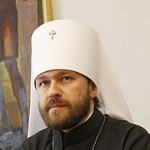

 Source: Russian Orthodox Church Department of External Church Relations
Source: Russian Orthodox Church Department of External Church Relations